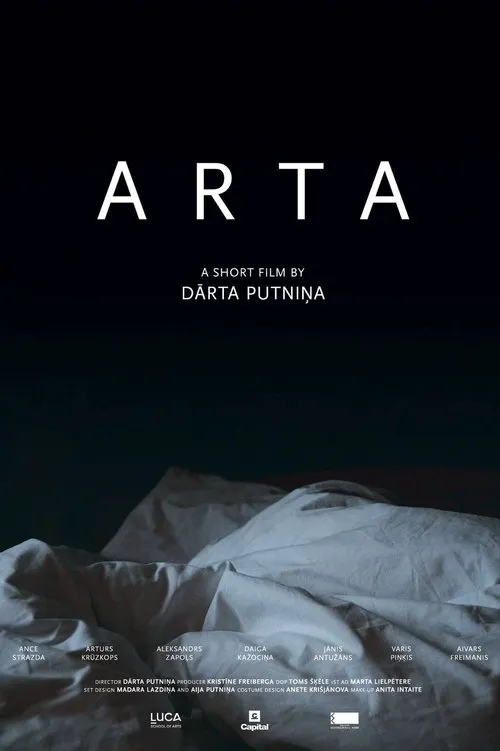Arta

Plot
Arta is a poignant and unsettling film that delves into the complexities of human relationships and the desperation that can arise from feelings of isolation. The film's narrative centers around its protagonist, Arta, a young woman suffering from insomnia who finds solace in collecting pictures of other people sleeping. On the surface, this peculiar hobby may seem like a manifestation of Arta's own sleep deprivation, but as the story unfolds, it becomes clear that her fixation is rooted in a deeper emotional void. The film's opening scenes introduce Arta as a relatable and sympathetic character, navigating her insomnia-filled nights with a mixture of frustration and desperation. Her sleepless hours are spent scrolling through images of strangers asleep, a strange comfort found in observing their tranquility. However, this crutch is tested when one night, Arta, in a moment of carelessness, locks herself out of the house. With no other options, she is forced to spend the night on the streets, shivering in her pyjamas. As the camera pans across the city streets, Arta's predicament takes on a sense of unease and vulnerability. The film's cinematography captures the urban landscape in a unique, almost detached manner, mirroring Arta's growing sense of disconnection from the world around her. Her journey through the night, with its quiet conversations and fleeting interactions with strangers, raises questions about the fragility of human connections and the perils of being alone. Arta's encounter with a group of young people camping on the rooftop of a dilapidated building is a turning point in the film. Initially, she seems hesitant to join them, but as the night wears on, and her shared struggles with insomnia are revealed, her guard begins to drop. In these moments, Arta is seen to be stripped bare, revealing a complex tapestry of emotions and desires that have long been suppressed beneath her surface-level persona. The group's collective struggle with sleep deprivation sparks a connection between Arta and the other young individuals on the rooftop. The shared experience creates an impromptu bond between them, an attempt to momentarily fill the void within. The camera captures these interactions in a gentle, observational manner, allowing the viewer to absorb the intimacy and the desperation of their conversations. Yet, as the night wears on, and the early hours of dawn begin to creep in, it becomes clear that this bond is tenuous at best. The film's narrative subtly underlines the difficulties in forming genuine connections with others, particularly when those connections are forged in the midst of desperation and shared struggles. Even as Arta and the others form a fragile sense of community, it is clear that this newfound sense of belonging may soon fracture under the weight of their individual realities. As the night draws to a close, Arta returns home, her journey having brought her face-to-face with the darker aspects of her existence. She is met with an unexpected sight: her camera, overflowing with photographs of other people sleeping. In this moment, Arta's fixation on collecting these images becomes a stark reminder of her own isolation. The camera pans away, leaving the viewer to ponder Arta's fate, and the nature of the connections that have been forged in the dead of night. The film concludes with a sense of ambiguity, leaving the viewer to consider the extent to which Arta has genuinely connected with the others, or whether her relationships are merely a fleeting reprieve from her insomnia. Regardless of the outcome, the film raises essential questions about the intricacies of human relationships and the desperation that can arise when we feel most disconnected.
Reviews
Recommendations


